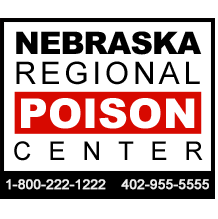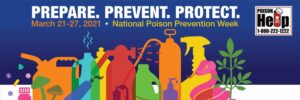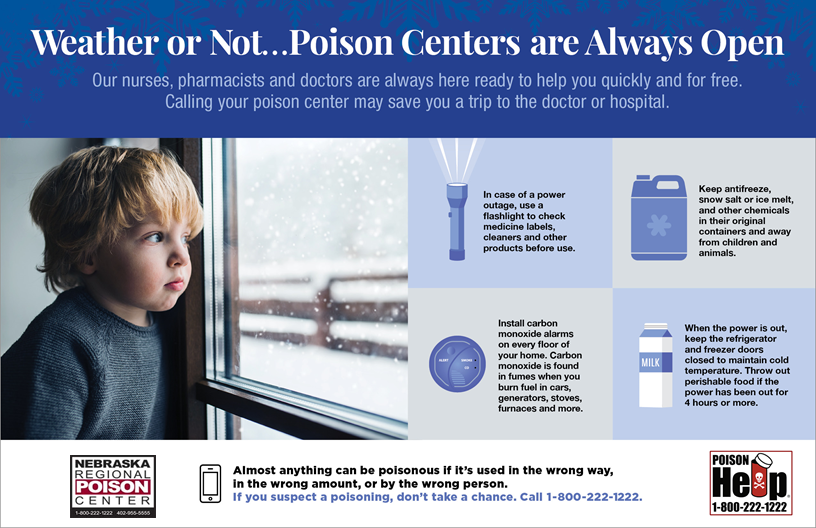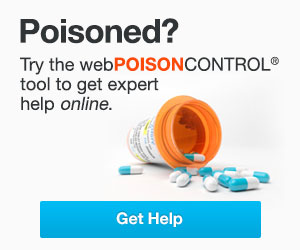Para todos los niños, regresar a la escuela les presenta muchas posibilidades, algunas de estas potencialmente peligrosas. Al hablar con sus hijos sobre sustancias que pueden dañarlos, puede ayudarlos a tener la mejor experiencia durante sus años escolares. Estos son algunos de los peligros potenciales:
Desinfectantes de manos y seguridad alimentaria: con los almuerzos de regreso a clases, asegúrese de fomentar el lavado de manos y la buena higiene, y cuando el agua y el jabón no estén disponibles, el desinfectante de manos o alcohol gel es una buena opción. Recuerde a los niños pequeños que el desinfectante de manos es solo para las manos y no se debe ingerir. Muchos desinfectantes para las manos contienen alcohol y otros aditivos antibacterianos que pueden causar irritación y malestar estomacal. Llame a su centro de intoxicaciones si su hijo ingiere estos productos. Practique seguridad alimentaria con la refrigeración adecuada de los alimentos y sea consciente empacando los almuerzos con alimentos como productos de carne y queso que se pueden estropear fácilmente, asegúrese de que se incluyan paquetes adecuados para enfriar la comida.
Bebidas energéticas: pueden contener grandes dosis de cafeína. Los estudiantes las usan para abarrotar durante las sesiones de estudio nocturnas, y algunos productos contienen estimulantes adicionales para aumentar la energía, mejorar el estado de ánimo y retrasar el sueño. La cantidad de cafeína en muchas bebidas energéticas es mucho mayor que la cantidad que se encuentra en los refrescos y, a menudo, es mucho mayor que la cantidad que se encuentra en una taza de café, lo que presenta un riesgo mucho mayor de sobredosis de cafeína y problemas de salud relacionados. Los polvos de cafeína y las píldoras energéticas de venta libre pueden causar síntomas de malestar estomacal, temblores, inquietud, sudoración, dolor de cabeza y pueden progresar a convulsiones. Los adolescentes que participan en actividades deportivas consumen muchas bebidas energéticas porque creen que aumentan el rendimiento y reponen los líquidos. Estos productos en realidad aumentan la deshidratación, lo cual puede ser muy peligroso en la práctica de deportes al aire libre, especialmente en áreas en las que las temperaturas exteriores más altas son comunes.
Vapear: un vaporizador que estimula el tabaquismo, también conocido como cigarrillo electrónico, puede contener más que nicotina. Los aromas agregados, propilenglicol, glicerina, aditivos y otros contaminantes son todos elementos de los cigarrillos electrónicos. Según la Encuesta Nacional de Tabaco Juvenil, el vapeo ha aumentado constantemente en la escuela media y los estudiantes de secundaria desde 2013. Existe una idea errónea muy publicitada de que los cigarrillos electrónicos son más seguros que fumar un cigarrillo real, y amplia evidencia de que usar cigarrillos electrónicos también conduce a un mayor uso de marihuana. Vapear puede aumentar la adicción, causar irritación respiratoria, visión borrosa, tos, dolor de pecho y malestar estomacal. La intoxicación por nicotina puede causar dolor de estómago, salivación, frecuencia cardíaca más rápida y convulsiones. También existe un mayor riesgo de que el dispositivo explote debido al aumento de temperatura de la batería, provocando lesiones y daños. Se desconocen los efectos a largo plazo de los aditivos de vapor y el riesgo potencial de carcinógenos.
Medicamentos recetados: recetados y usados correctamente, los medicamentos recetados tienen usos legítimos y resultados positivos. Pero los analgésicos recetados, también conocidos como opioides, comúnmente se usan indebidamente y se abusan entre todos los grupos de edad. Los opioides pueden ralentizar los sistemas del cuerpo hasta el punto en que una persona deja de respirar. Otros peligros potenciales incluyen los medicamentos para el TDAH que se abusan como “estimuladores del cerebro” o “potenciadores académicos”. El mal uso o abuso de ellos podría provocar un aumento de la frecuencia cardíaca, agitación, dificultad para respirar y convulsiones. Los adolescentes son cada vez más informales sobre el uso de medicamentos de venta libre y recetados, y abusan de ellos de forma recreativa sin tener en cuenta los posibles impactos en la salud. Muchas veces el alcohol se usa como complemento, lo cual complica los efectos de las drogas. Fomentamos una conversación franca con su hijo sobre los peligros de experimentar con drogas. Consulte a nuestros socios de Coalition Rx en www.coalitionrx.org para obtener más recursos sobre este tema.
Comuníquese con el Centro Regional de Envenenamiento de Nebraska para cualquier pregunta que pueda tener al 1-800-222-1222.




